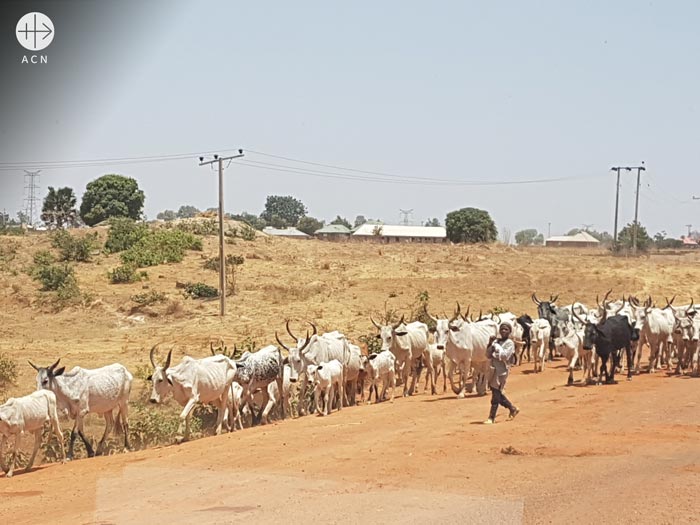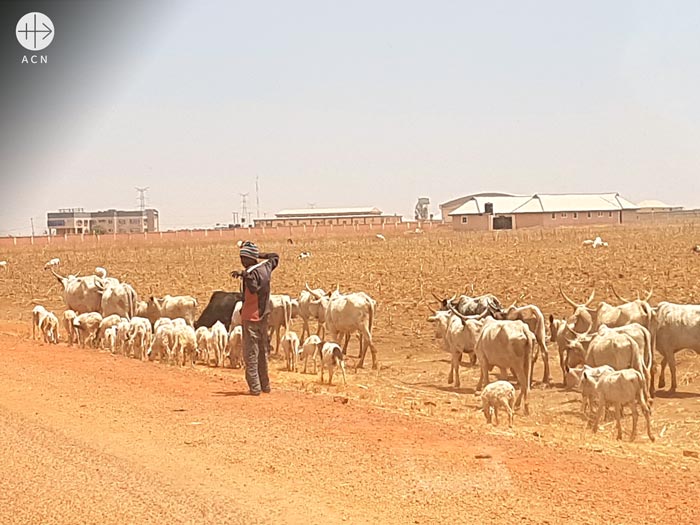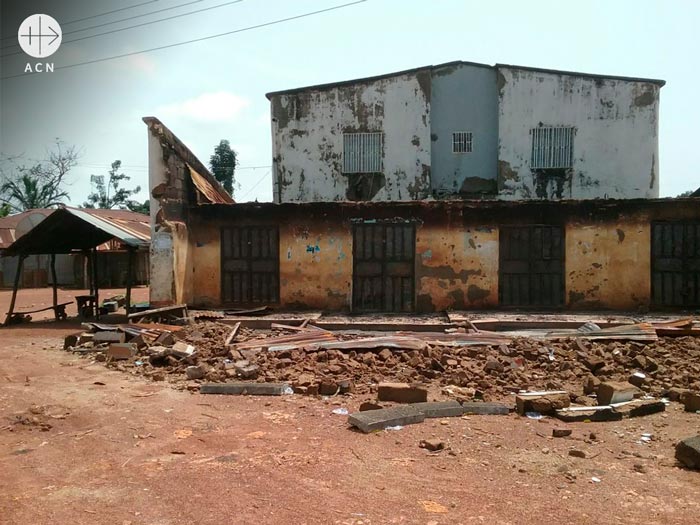“There is a clear agenda, a plan to Islamise all the areas that are currently predominantly Christian in the so-called Middle Belt of Nigeria.”

This was the statement made by Bishop Wilfred Chikpa Anagbe of the diocese of Makurdi in Nigeria, who was speaking to the international Catholic pastoral charity Aid to the Church in Need (ACN). It is in his diocese that the parish of Saint Ignatius is situated, in Ukpor-Mbalom in Benue State. This was the scene of the most recent attack, which took place on 24 April. “Two of my priests were murdered, Father Joseph Gor and Father Felix Tyolaha, together with at least 17 of the faithful. They were celebrating Holy Mass at 6 in the morning.” Among the victims were a lay catechist and the president of the parish council, “both of them mothers of families”, and also the head teacher of the only secondary school in the town.
During the interview, Bishop Anagbe noted that the total number of victims has still not been definitively ascertained, since tragically, some family members of the Catholic faithful have also disappeared.
This was no isolated incident. Since the beginning of this year over 100 people have been killed in similar attacks. “11 parishes in the diocese have been attacked”, the bishop told ACN, “and there have been numerous other attacks throughout Benue State, where 99% of the population are Christians. On January 18 they found a mass grave with 72 bodies in it.”
The attacks were carried out by nomadic cattle herders of the Fulani tribe with Islamist tendency. “We are not speaking of Boko Haram this time, although some of the cattle herders have had relations with that terrorist group in the past and both groups are united in the same intention to Islamise the entire region”, the bishop added. In the face of so much violence one of the most worrying aspects for the bishop is the complete lack of action on the part of the government, especially the federal government. “When the attacks take place, there are never any police or soldiers present. Quite apart from the fact that the Fulani tribesman for the most part live in the mountains and cannot afford the luxury of such sophisticated weapons. So who is funding them?”


The violence has resulted in a large number of internal refugees, over 100,000 of them, now living in four separate refugee camps in the diocese of Makurdi. “The Church is helping the people, whereas the government is not helping us at all in this case”, the bishop explained.
The area where the most recent attack took place is now completely abandoned and deserted. The parish of Mbalom was established only in 2015. “There was nothing at the time, no schools and no hospitals. We built these, above all thanks to the dedication of Father Joseph and Father Felix. They were priests who were truly active and devoted to their community”, the bishop observed.

In the face of so much pain and suffering, the Nigerian Christians are not losing hope – but they do need the support of the international community. The Catholic Church in Nigeria has organised a march for 22 May to protest against the continuing massacres of Christians by the Fulani cattle herders. “Please pray for us and make yourself spokesmen for the suffering our community is going through. We need people to raise their voices in our defence. Nigeria is part of the United Nations, and we cannot simply be abandoned and forgotten by the world.”
